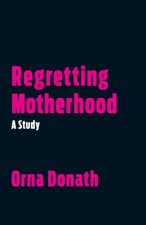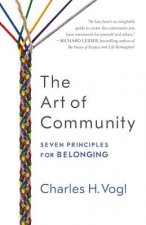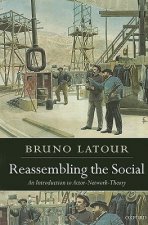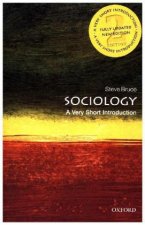
Kód: 01251996
Initiating Ethnographic Research
Autor Stephen L Schensul
Book 2 of the Ethnographer's Toolkit, Initiating Ethnographic Research: A Mixed Methods Approach, is the first book of its kind. Unlike texts that describe and detail methods for doing ethnographic and qualitative research once in ... celý popis
- Jazyk:
 Angličtina
Angličtina - Väzba: Brožovaná
- Počet strán: 268
Nakladateľ: AltaMira Press,U.S., 2012
- Viac informácií o knihe

Mohlo by sa vám tiež páčiť
-

Cognitive Enhancement
178.46 € -

Doing Good Is Simple
20.49 € -

Good News, Bad News
17.44 € -3 % -

Law and Practice Relating to Charities: First Supplement to the Fourth Edition
285.20 € -

French Rugby Football
219.15 € -

Developments in Surface Contamination and Cleaning - Vol 2
263.90 € -

Phospholipids in the Nervous Sytem
73.25 €
Darčekový poukaz: Radosť zaručená
- Darujte poukaz v ľubovoľnej hodnote, a my sa postaráme o zvyšok.
- Poukaz sa vzťahuje na všetky produkty v našej ponuke.
- Elektronický poukaz si vytlačíte z e-mailu a môžete ho ihneď darovať.
- Platnosť poukazu je 12 mesiacov od dátumu vystavenia.
Viac informácií o knihe Initiating Ethnographic Research
Nákupom získate 184 bodov
 Anotácia knihy
Anotácia knihy
Book 2 of the Ethnographer's Toolkit, Initiating Ethnographic Research: A Mixed Methods Approach, is the first book of its kind. Unlike texts that describe and detail methods for doing ethnographic and qualitative research once in the field, Book 2 explores in depth the many critical issues that ethnographic researchers need to consider before going to the field and in the earliest stages of the field experience. These include preparation of self, establishing relationships that ensure access to the field, and steps in the construction of a formative theoretical model that will inform the entire research process from start to finish. Following guidelines established in Book 1, the first three chapters describe the reasons why ethnography should be considered a mixed methods approach to social science research. They discuss why theory is important in guiding a study, and the important institutional and personal preparations required to enter a field setting and begin work. Additional chapters debunk the idea that ethnographers always enter the field with their minds a "clean slate" in terms of what they will find during their investigation. They show why and how researchers can develop initial theoretical models based on local knowledge and literature reviews. Ethnography uses a holistic approach, so such models take into consideration both individual/population and systemic or structural considerations. They lead the way to integrating ecological, empirical, critical, and interpretivist approaches into a comprehensive analysis of a dynamic system. Two chapters also provide detailed examples to illustrate the connection between steps in the modeling process, creation of observational measures, and steps in data collection--from most open-ended kinds of interviewing and observation to the kind of highly structured ethnographic surveying described in Book 3. Extensive illustrative case examples are included. The final chapter shows how the modeling process can be extended to guide the development of interventions and change strategies at multiple levels-a process that should be part of any research program. A wide variety of diagrams, instructions, examples, and illustrations make the topics and processes covered in Book 2 easy to read and understand, even by novice researchers. Overall, Book 2 offers a unique mixed methods lens through which to build theory by engaging in research modeling, to enter the field, to set up to gather data, and to anticipate influencing change.
 Parametre knihy
Parametre knihy
Zaradenie knihy Knihy po anglicky Society & social sciences Sociology & anthropology Sociology
73.86 €
- Celý názov: Initiating Ethnographic Research
- Autor: Stephen L Schensul
- Jazyk:
 Angličtina
Angličtina - Väzba: Brožovaná
- Počet strán: 268
- EAN: 9780759122017
- ISBN: 0759122016
- ID: 01251996
- Nakladateľ: AltaMira Press,U.S.
- Hmotnosť: 436 g
- Rozmery: 154 × 227 × 20 mm
- Dátum vydania: 13. December 2012
Obľúbené z iného súdka
-

Sex at Dawn
13.69 € -20 % -

Death and the Afterlife
18.66 € -22 % -

Cartoon Guide to Statistics
19.47 € -16 % -

Why Love Hurts - A Sociological Explanation
17.75 € -

Past Mortems
10.03 € -22 % -

Basic and Advanced Focus Groups
43.11 € -10 % -

Fair Play Deck
21.40 € -7 % -

Intimate Communion
13.69 € -20 % -

Tragedy and Hope
44.43 € -

Small Is Beautiful
11.05 € -23 % -

More Than Two
24.95 € -19 % -

Regretting Motherhood
15.82 € -8 % -

Social Intelligence
13.08 € -22 % -

True Believer
14.09 € -23 % -

Art of Community: Seven Principles for Belonging
19.37 € -19 % -

NINETY PERCENT OF EVERYTHING
18.66 € -8 % -

Reassembling the Social
42.30 € -

Family and Civilization
22.72 € -6 % -

Book of Tea
10.03 € -22 % -

Building and Dwelling
14.50 € -24 % -

Constructing Grounded Theory
52.95 € -1 % -

Surrendered Wife
11.05 € -23 % -

Of Woman Born
15.21 € -15 % -

Cruel Optimism
29.31 € -10 % -

Death and the Afterlife
32.05 € -

What Kinship Is-And Is Not
19.27 € -18 % -

Social History of Sexual Relations in Iran
59.65 € -

Post-Adoption Blues
18.46 € -

Dissecting the Danchi
150.76 € -

Birth Of A Mother
22.21 € -

New Old Fashioned Ways
18.96 € -

Platform Society
40.27 € -

Secret Meaning of Money - How to Prevent Financial Problems from Destroying Our Most Intimate Relationships
41.08 € -

Death Tourism
40.47 € -

Braving the Wilderness
8.72 € -20 % -

Eroticism
12.17 € -23 % -

Marriage, a History
18.56 € -12 % -

Bushido the Soul of Japan
11.46 € -

Intercourse
15.51 € -18 % -

Ideology and Utopia
18.96 € -

Population Control
14.30 € -23 % -

Class Ceiling
12.98 € -10 % -

Chrysanthemum and the Sword
18.86 € -

Smoke Gets in Your Eyes
10.14 € -24 % -

Sociology: A Very Short Introduction
10.03 € -22 % -

Being Mortal
13.79 € -4 % -

Theory of the Leisure Class
12.17 € -23 % -

Social Construction of Reality
12.17 € -23 % -

Bushido: The Soul Of Japan
17.34 € -14 %
Osobný odber Bratislava a 2642 dalších
Copyright ©2008-24 najlacnejsie-knihy.sk Všetky práva vyhradenéSúkromieCookies



 21 miliónov titulov
21 miliónov titulov Vrátenie do mesiaca
Vrátenie do mesiaca 02/210 210 99 (8-15.30h)
02/210 210 99 (8-15.30h)